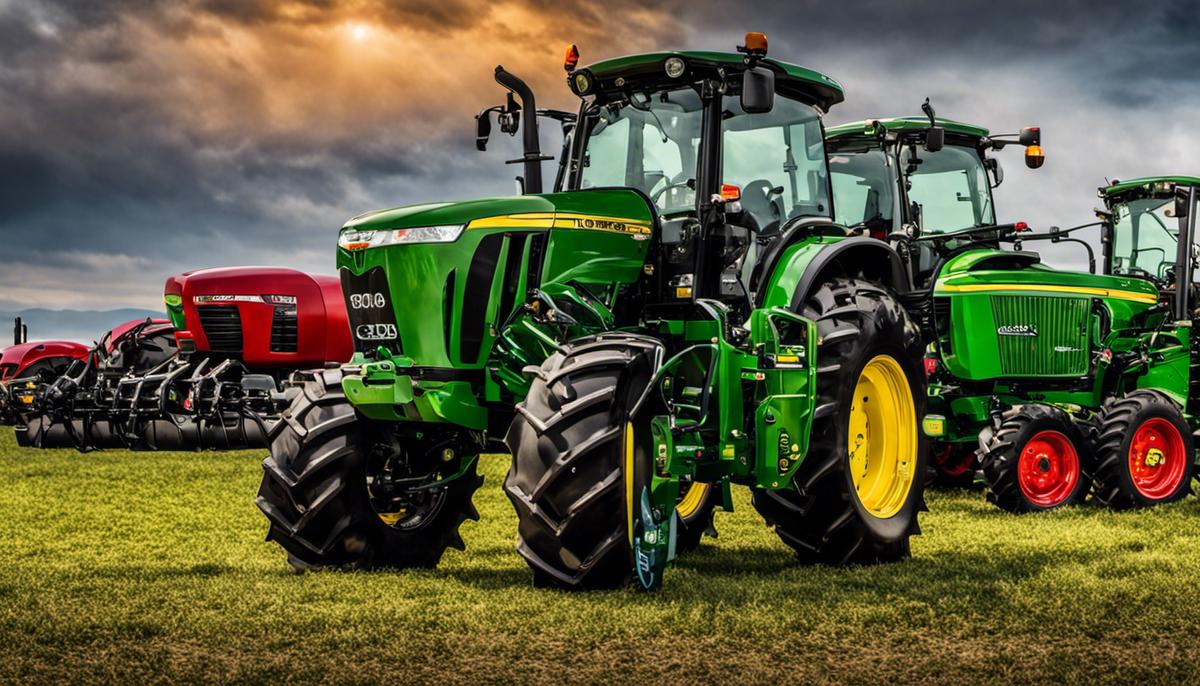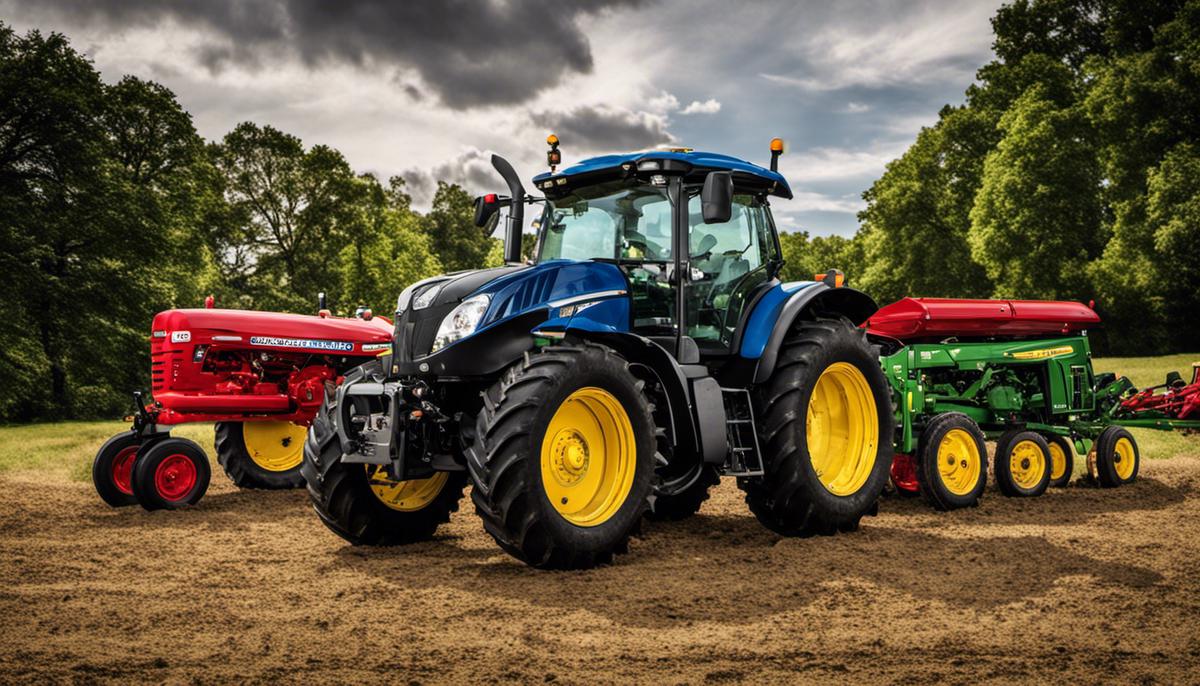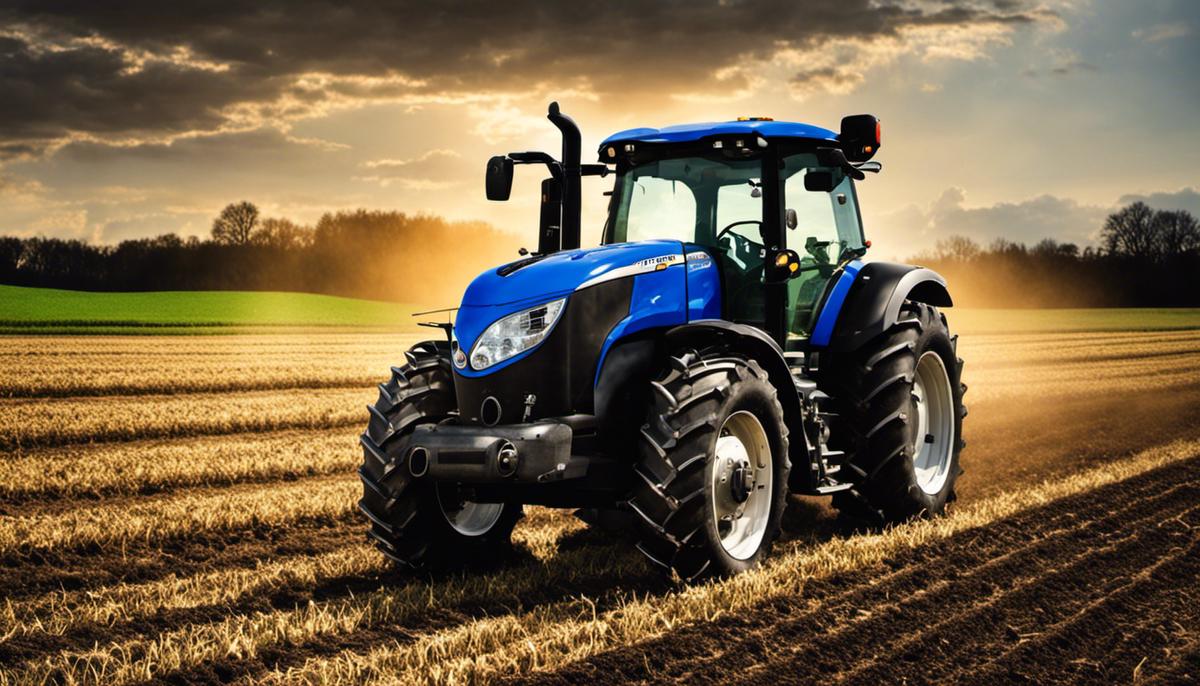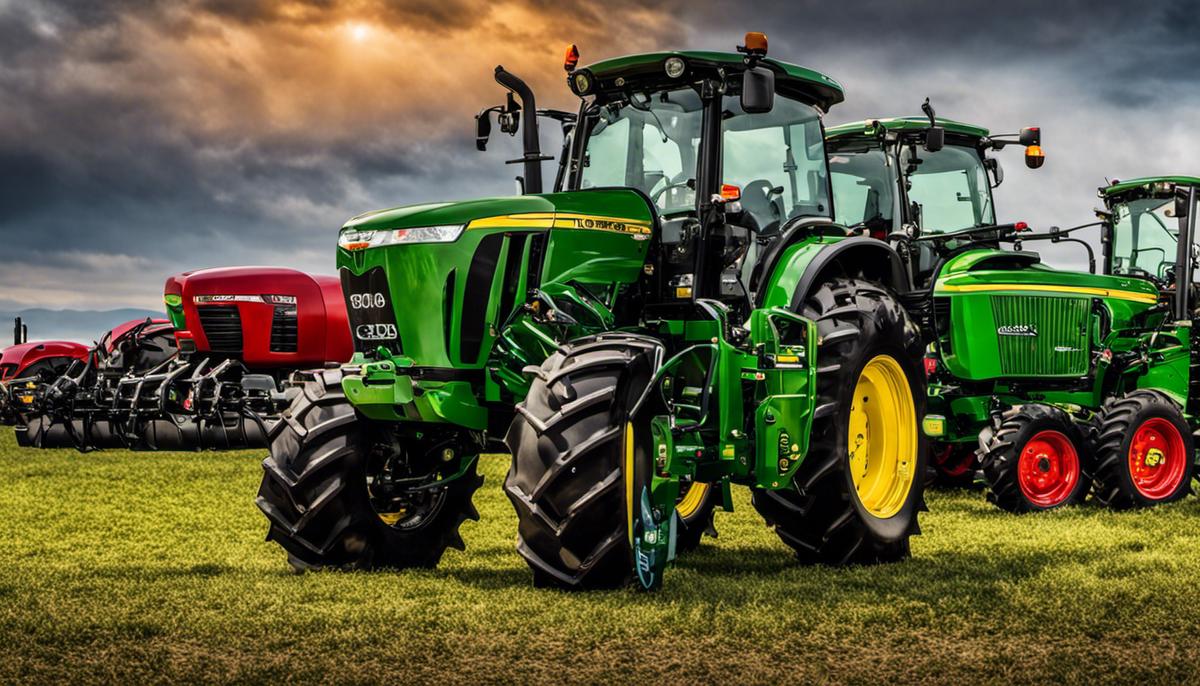

Agridisk
Egypt - Alexandria

How To Choose The Best Tractor For Your Farm ?
Description: Farming is an intricate enterprise that calls for the right tools and machinery to ensure successful operation. One irreplaceable piece of equipment in the farming layout is a durable and efficient tractor. Tractors are available in a wide selection, including subcompact, compact, utility, and row crop tractors. Each type comes with different features, sizes, and horsepower, designed for varying farming tasks. Moreover, when selecting a tractor that fits your farm needs, it's not merely about aesthetics or power. It also involves clear understanding of unique requirements including the type of farm, size, tasks, and weather conditions. Finding the perfect match also means maneuvering through financial aspects like pricing, financing options, maintenance costs, and the decision between buying new, used or simply leasing. Welcome to the impressively dynamic sphere of tractors, where innovation meets utility and significant business opportunities arise. As an entrepreneur, you may see growth potential in varied industries, and the world of tractors is no different. These powerful machines come in an array of types, each with their own unique purpose that caters to the specific needs of potential consumers. Grasping an understanding of the different types of tractors and their uses opens the door to hidden revenue streams, enables insightful networking opportunities and fuels potential product developments. First, let's begin our journey with Utility Tractors. They are the jack-of-all-trades in the tractor universe. These versatile machines are often used by small-scale farmers but possess applications across multiple landscapes. Utility tractors carry an adaptable build. With the appropriate attachments, they can handle tasks such as plowing, harvesting, and towing. Next, row-crop tractors—precision tools crafted specifically to assist in the intricate care of row crops. They feature high ground clearance to avoid damaging crops, a narrow build for row-navigation and a powerful engine to pull heavy implements. Innovations continue in this market, with GPS guided systems offering precision that significantly reduces crop damage in this $75 billion U.S industry. Following closely on the track are Garden Tractors. While on the surface they may seem like an average lawnmower, these compact machines offer so much more. Garden tractors can mow, of course, but with attachments they can also till, plow, and more, making them perfect for maintaining household green spaces. Ever-evolving, these machines now feature environmentally-friendly tech appealing to a sustainable consumer market. It is impossible to overlook the indomitable Industrial Tractors, which are heavy duty vehicles designed for large-scale tasks and industrial work including construction, landscaping, and municipal jobs. These juggernauts offer the helping hand in industries ripe for product and service innovation due to continuous need for cost, and time efficiency. Last but not the least, we have Rotary Tillers, a specialized type of tractor primarily used in tilling land — an indispensable step in crop production. Although they primarily operate in the agriculture sector, they also can be employed in horticulture and landscaping. Every type of tractor, while appearing to remain within the realm of agriculture, hints at myriad other avenues of revenue generation and business expansion. These machines offer their users, ranging from the small-town farmer to large-scale industrial enterprises, the ability to accomplish tasks with unrivaled power and efficiency. In the same way, savvy entrepreneurs and innovative corporations can gear their business models to serve these diverse needs with an equally varied product or service offering. Take that leap into tractor territory as you embrace the proactive, forward-thinking entrepreneurial spirit. Flush with opportunity, the world of tractors is waiting for your next innovative venture! Selecting the perfect tractor for farming needs is akin to identifying a superhero, tailored to battle your unique agriculture challenges. The match between tractor and task can be the make or break determinant in any farming venture. The earlier part of this series touched on the broad categories of tractors – utility, row-crop, garden, industrial, and rotary tillers. This sequel will guide farmers on those critical, underlying yet decisive factors crucial in this major decision process. Engine Power: Horsepower defines the potential of a tractor. While it might be tempting to choose maximum horsepower, the decision should reflect the tasks at hand. Higher horsepower may be effective for more demanding jobs but can be overkill for lighter tasks leading to unnecessary fuel consumption and maintenance costs. Fuel Efficiency: For the 21st-century farmer, with escalating fuel prices and environmental concerns, efficiency is paramount. Tractors with alternative fuel options and energy-saving technologies should be thoroughly considered. Comfort and Ergonomics: Prolonged usage of tractors can take a toll on the operator's health. Modern tractors offer features such as suspension seats, tilt steering, ergonomic instrument panels, air conditioning, and hefty sound insulation. Making these a priority can provide long-term relief and positively impact productivity. Technological Integrations: Cutting-edge technology redefines the boundaries of farming. Auto-steer systems, GPS mapping, and remote monitoring systems incorporated in tractors can elevate the farming experience by reducing overlaps, lowering input costs, and improving yield. Maintenance and After-Sale Service: Finally yet importantly, the realm of maintenance and after-sales cannot be overlooked. A great tractor that is not backed up by prompt service and easily available parts can prove detrimental when downtime occurs. Future Expansion: Proactiveness tends to pay well in the farming industry. Future plans of crops, farming techniques, or land expansion may require a different set of tractor capabilities. A strategic approach with a bit of foresight can save a round of tractor shopping in the near future. Resale Value: Although it's not the foremost concern, considering resale possibilities won’t harm. Companies with strong brand reputation generally garner good resale value. Remember, the best tractor is not necessarily the most expensive one or packed with the latest technologies. Rather, it is the one most suited to your unique farming needs whilst remaining cost-effective and sustainable over the long haul. Examining the five major types of tractors, there's one essential element that pops up and should always be considered in the purchasing equation - budgeting. Typically, as an entrepreneur, you would look at your primary business requirement, translate that into the type of tractor you need, and then evaluate your financial capacity. The plan is simple, but execution can be complex. Here's how to go about it: Firstly, know your business requirements. Scaling and scope of operations should be at the forefront. Need a machine with high horsepower capacity for large-scale work? Industrial tractors may be your best bet. Flipping it, maybe you're into garden landscaping, a more compact and fuel-efficient garden tractor could be more befitting. By defining your operations, you're half-way through the budgeting process as it gives you a ballpark figure of what the investment cost would be. Secondly, don't stop at the initial purchase cost. Of equal importance are operating and maintenance costs. For example, a tractor with a very powerful engine may have a higher fuel consumption rate. If you're operating on a regular basis, this could mean a considerable running cost and may impact your bottom line. Similarly, ease of maintenance and availability of spare parts should be considered. A tractor with cheaper upfront cost but which needs exotic spare parts may be more expensive in the long run. Once you've determined your needs and crunched the numbers, it's time to look at financing options. Many dealers offer financing plans, while banking institutions may provide equipment loans. Evaluate these options or consider self-financing based on your available resources. Assess each method based on factors such as down payment, interest rates, and length of payment period. Remember, purchasing a tractor is an investment that pays off over time. Therefore, consider the resale value of the tractor too. Many tractors hold their value well, especially those that are well-maintained. Lastly, technological features that increase functionality and fuel efficiency, or even offer possible future expansion should not be overlooked. These could include GPS systems, automatic transmission, or environmentally-friendly tech. While such features may inflate the initial cost, they often bring savings and efficiencies in the long run. In the end, buying a tractor isn't just about acquiring a piece of equipment; it's about harnessing a robust tool that will inject efficiency into your business operations. Make your decision fact-based, financially sound, and future-ready. The right tractor will not only match your budget but will also exceed your business requirements and expectations. Choosing the right tractor for farming operations can seem like a daunting task, but it cannot be overstated how crucial it is to the productivity and success of your farm. With a sound understanding of the different types of tractors and a clear assessment of your farming needs, you're well on your way to making an informed decision. Always bear in mind your financial constraints and available purchasing options. Whether you opt for a subcompact or a row crop tractor, new, used or leased, ensure that the tractor you choose meets all your operational requirements while staying within the boundaries of your budget. Remember, it’s not about having the biggest or the most advanced tractor, but the one that works best for your unique farming needs.Understanding Different Types of Tractors
The Diverse World of Tractors: Identifying Types and Their Specific Uses

Assessing Your Farming Needs

Budgeting and Purchasing Options
